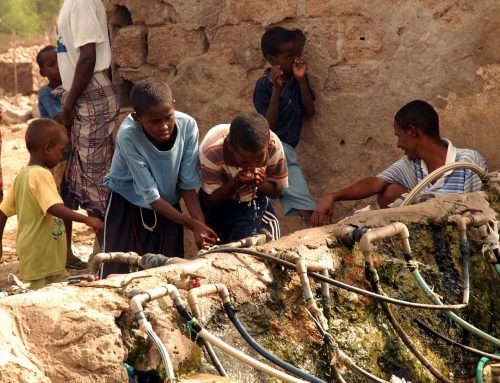Access to potable water in Sierra Leone faces many challenges, especially since civil war that devastated the country in 2002. The Guma Valley Water Company in Sierra Leone recently became the first water company in Africa, and only the second in the world, to get an AquaRating certificate.
While the water supply in Sierra Leone was made the responsibility of local councils in areas outside the capital since 2004, the supply in Freetown, the capital of Sierra Leone, remains the responsibility of the Guma Valley Water Company (GVWC).
Freetown faces both a burgeoning population and increasing demand for water from domestic use, agriculture and industry. The Guma Valley Water Company responded to these challenges and the expectations by using AquaRating to establish a baseline of their performance, to enable improvements to be measured over time, and to inform action plans for improvement.
GVWC is one of the few water operators to have successfully engaged in a balanced and innovative approach to utility management, based on corporate governance that is financially self-sustaining, which is a remarkable achievement in a country that is still slowly emerging from a after a decade long civil war from 1991 to 2002 and a devastating Ebola outbreak in 2014 which resulted in a humanitarian crisis that strained the country’s resources to breaking point.
GVWC has maintained its commitment to transparency throughout, despite far from outstanding results, and this has helped point the way for future improvements and progress. The company is determined to improving access to safe drinking water in Sierra Leone, and thanks to AquaRating it has a clear picture of where it stands today, where it wants to be in the future and how to get there.
At a recent event to recognize the completion of the Aquarating process the Minister for Water Resources, Momodu Maligie, presented the AquaRating Certificate to Bankole Masaray, Managing Director of GVWC. It is of utmost importance to use the results of the AquaRating to restart on new bases, stressed the Minister. It is a picture of the real situation of the company, without which there is no visibility or opportunity to improve performances in a sector that is vital to the country, and where changes are urgent and indispensable.






